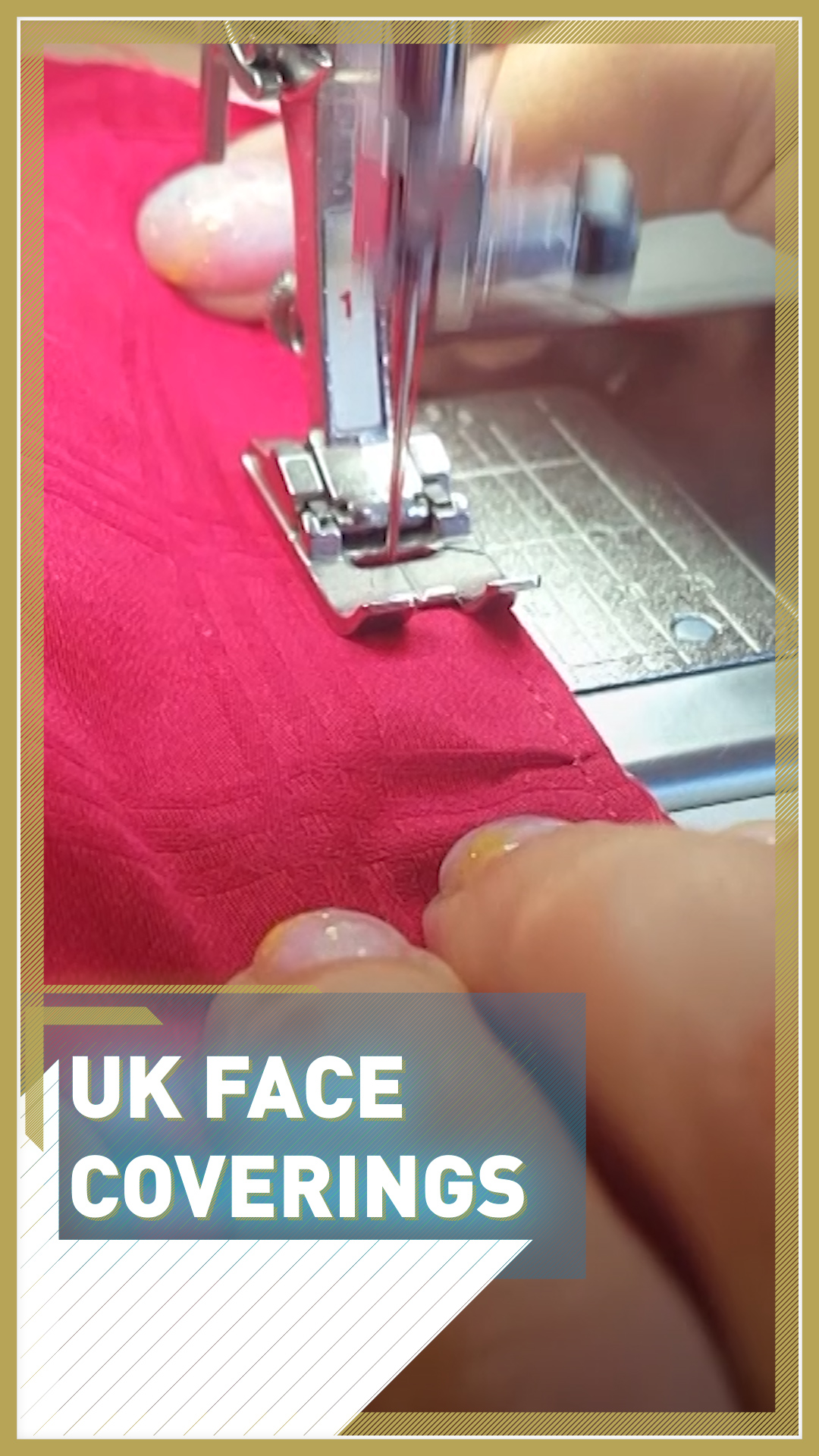03:07

People in England are now being told to cover their faces in enclosed public spaces to limit the spread of COVID-19.
From Wednesday, the general public are being urged to use face coverings to coincide with the first easing of lockdown restrictions.
More people have been allowed to return to work and more outdoor activities permitted as part of Prime Minister Boris Johnson's coronavirus recovery strategy.
The UK government's new advice is for "home-made cloth coverings" to be worn on public transport and in certain shops, "where social distancing is not always possible and where you may come into contact with others you don't normally meet."
Public Health England has issued instructions on how people can create their own masks out of old t-shirts and bandanas, so that surgical and medical masks can be kept for front-line NHS and healthcare workers.
Costume designer Elisa Zampieri has been making masks since the lockdown began and has had hundreds of people contacting her in the aftermath of the announcement.
She said: "I started sewing masks about four or five weeks in, just for friends or family. I've got so many different fabrics, fruits, colors, I'm trying to make them fun.
"Since the official advice, some people have been interested in making the mask match their outfit, which also makes people feel more comfortable going around."

Elisa Zampieri has been making fashionable masks since the start of lockdown and has received hundreds more requests since the announcement. /Instagram/@elyzampa
Elisa Zampieri has been making fashionable masks since the start of lockdown and has received hundreds more requests since the announcement. /Instagram/@elyzampa
In the 50-page document detailing the government's strategy, officials say coverings "will help reduce transmission in some circumstances" and can help people from spreading the disease to others, particularly if someone is asymptomatic.
UK ministers and health experts previously insisted the scientific evidence behind the use of face masks wasn't strong enough.
Gero Baiardo, a doctor, thinks the UK has responded after seeing the success of other countries including Germany and France, which have made it compulsory for the general public to wear masks.
"I think there's been a little bit of catching up with this advice," he said. "If you look around the world, it's obvious that other countries that have done well and have started to ease out of lockdown have used face masks or coverings and I think we should be wearing coverings if anything to avoid the complacency which is already setting in. This is not over yet by any stretch, thousands more people are going to die and we need to do whatever we can to try to stop that."

Public Health England has issued instructions on how people can create their own masks out of old T-shirts./Public Health England
Public Health England has issued instructions on how people can create their own masks out of old T-shirts./Public Health England
Downing Street's shift in policy brings England into line with Scotland and Northern Ireland, where advice on coverings had already been issued by the devolved administrations.
However, the Welsh government isn't following the same guidance. First Minister Mark Drakeford announced he wouldn't be mandating the use of masks as there was only a "marginal public health case for the measure."
Countries around the world have adopted different rules on masks and coverings amid fierce debate over their effectiveness and following various global scientific studies.
Adam Finn from the University of Bristol said: "Experts are still learning the truth about the transmissibility of the virus. The decisions that have been made up until now have been affected by the availability of face masks to some extent but not what we know about the virus and face masks in general.
"I think that wearing regular masks, not special, surgical masks is probably not very effective. Because the air contains droplets that can pass around the side of the mask and actually because this thing is on your face, inadvertently, it may lead to you touching your face more. So there could be a paradoxical effect that having a mask could make you more likely to cause yourself to be infected."

A mural believed to have been painted by street artist Banksy had a surgical mask added to it two weeks ago. /VCG
A mural believed to have been painted by street artist Banksy had a surgical mask added to it two weeks ago. /VCG
Check out The Pandemic Playbook, CGTN Europe's major investigation into the lessons learnt from COVID-19